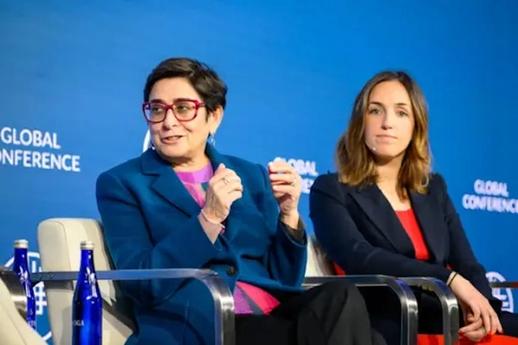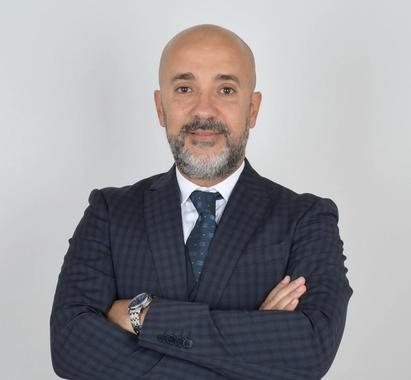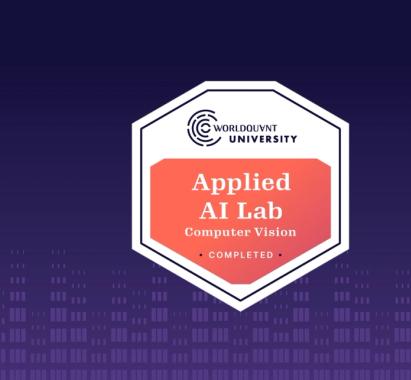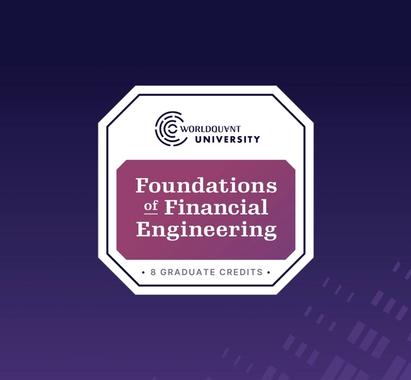Developing Talent Starts with Transforming Hiring Practices: Lessons from the Milken Global Conference

During the first week of May, WorldQuant University CEO Daphne Kis attended the Milken Global Conference in Beverly Hills, CA, where she joined the "Expanding Economic Opportunity Through Workforce Transformation" panel to discuss transformational hiring practices to make the workforce more accessible to millions of job-seekers.
The panel was moderated by Jena MacGregor, Senior Editor at Forbes Media. Daphne Kis was joined by established business leaders Ken Chenault, Chairman and Managing Director, General Catalyst; former Chairman and CEO, American Express; Carolyn Childers, Co-Founder and CEO at Chief; Debbie Dyson, CEO at OneTen, and Sophie Ruddock, Chief Operating Officer, Multiverse.
The conversation was rooted in the historical notion of the four-year college diploma as the standard for hiring in most family-sustaining jobs. Ken Chenault of General Catalyst pointed out that ever-growing degree inflation has been a barrier to job-seekers who don’t have the financial resources or time to attend a four-year college. This issue has disproportionately impacted people of color who have historically had less access to higher education resources.
Regardless of their backgrounds in higher education, there are plenty of people who are looking for ways to learn skills that are in high demand. Taking a skills-first hiring approach to hiring, Chenault said, could transform both the workplace and the lives of workers if large corporations would commit to these new approaches.
OneTen, an organization dedicated to demonstrating that these new approaches are effective, connects Black talent to employers and community partners through a platform that offers training programs, job placement services, and networking resources. Debbie Dyson commented that most college degrees don’t actually prepare students for the workforce, and that additional on-the-job training is almost always necessary for newly graduated workers.
WorldQuant University CEO Daphne Kis agreed that existing opportunities are not sufficient for workers who do not take a traditional degree path. She noted that while skills-based hiring is a good place to start, the initiative should not end there. She went on to explain that capacity to learn and adaptability to change are often better indicators of a good worker than a college diploma. She argued that corporations should be moving away from simple training and into talent development, where the worker can grow and change alongside the needs of the company. A worker with an education mindset is much more valuable to a company than a worker whose training stops a few years after they land a job.
Sophie Ruddock went on to add that development of talent is at the heart of many skills-first initiatives and apprenticeships, and these programs do often result in higher retention and more job satisfaction among workers. At Multiverse, a tech company striving to provide access to on the job training programs to a diverse network of job-seekers and career-changers, over 90% of apprentices stay in the job they trained for. The numbers bear out, but she warned that “change can’t be legislated. It has to come from within the company to work.”
Ken Chenault agreed that getting companies to make the change requires recognition that it’s a win-win: both employees and corporations get what they need when they agree to partner in training, reskilling, and focusing on the worker’s needs. Technologies such as burgeoning AI are going to change companies, he said, and everyone should be ready to embrace the changes and to encourage their workers to do the same. He added that it’s not an incremental move — that larger corporations should be bold in their decisions so that smaller companies will follow.
Building on Kis’s thoughts about employee-focused talent development, Carolyn Childers, pointed out that companies can go one step further and make space for mission-driven communities that are inclusive to people who have traditionally held lower-paying jobs. Sophie Ruddock agreed that corporations have the ability to build environments for dignified work and pathways to progress. Kis responded with ideas about aligning the company culture with that of their employees, and making policies based on shared goals like work-life balance, equitable practices in pay structure, and re-skilling opportunities.



